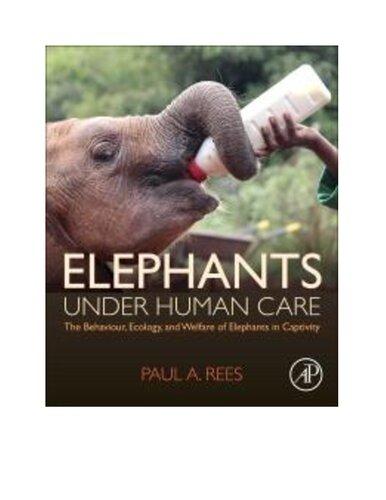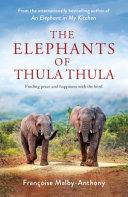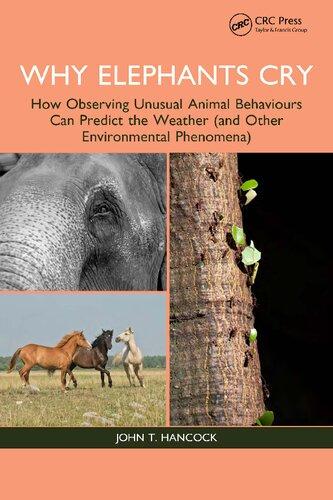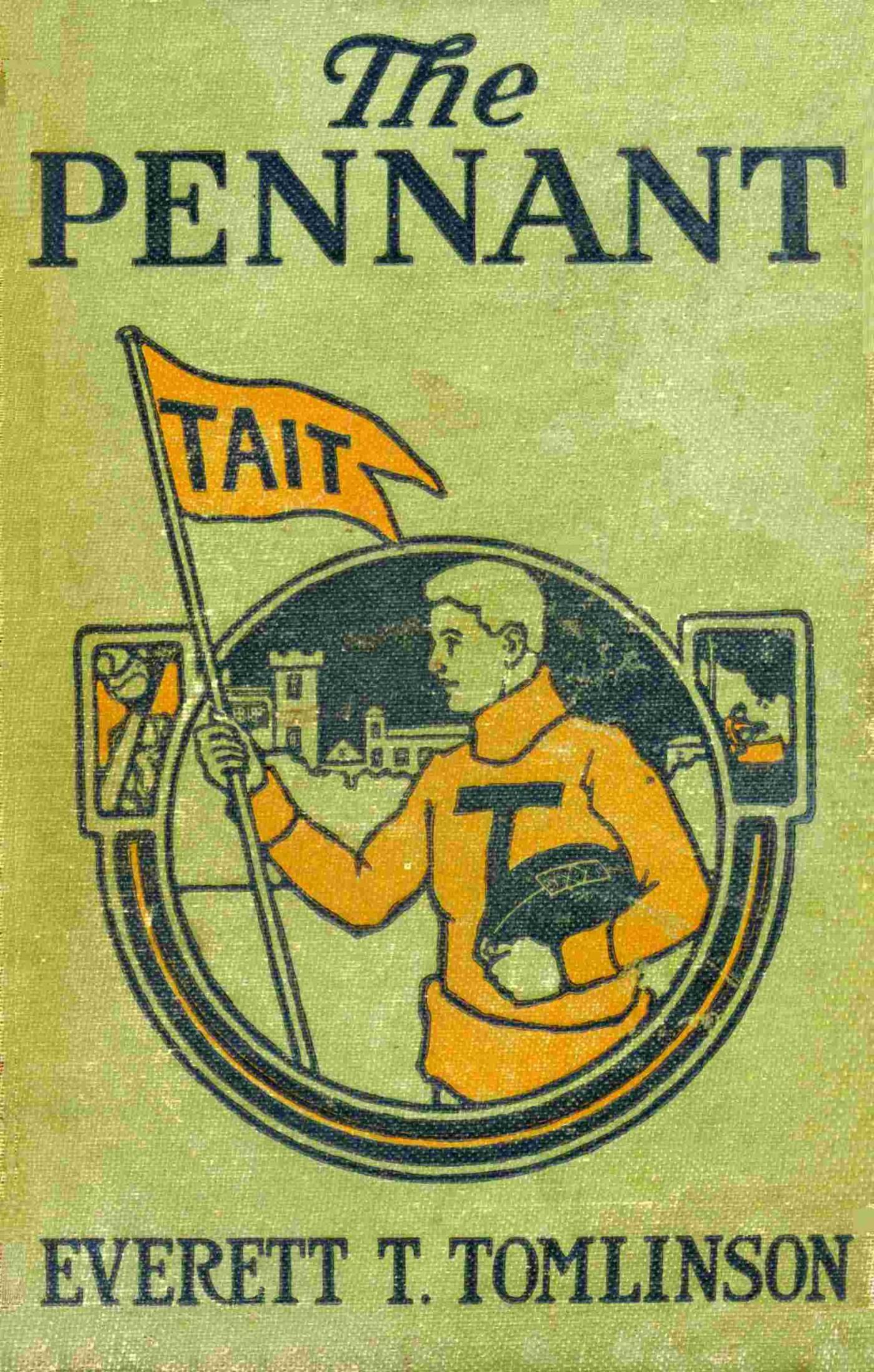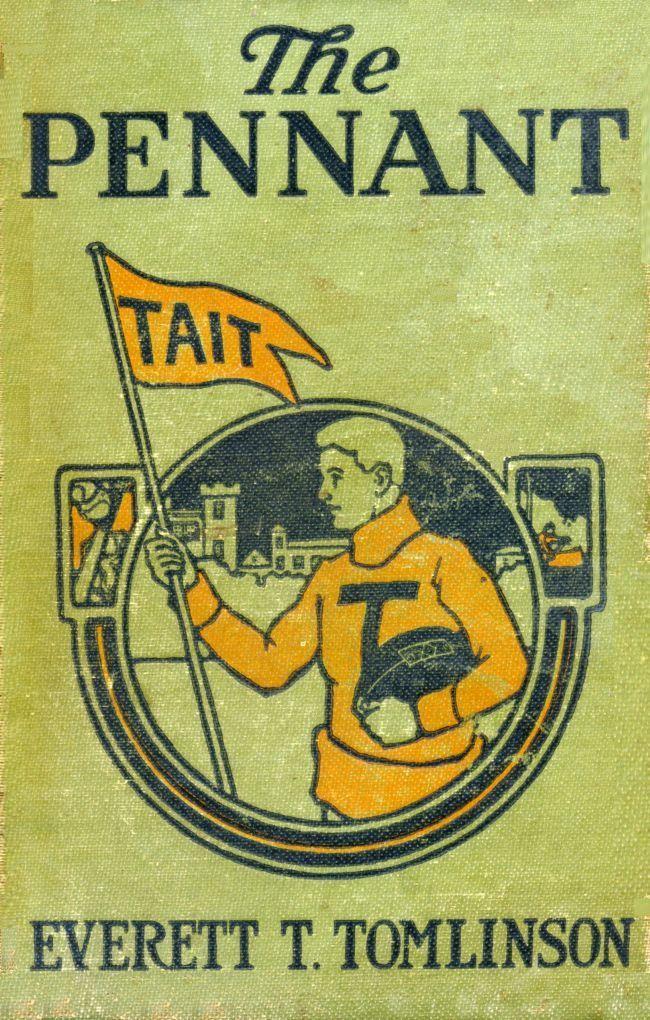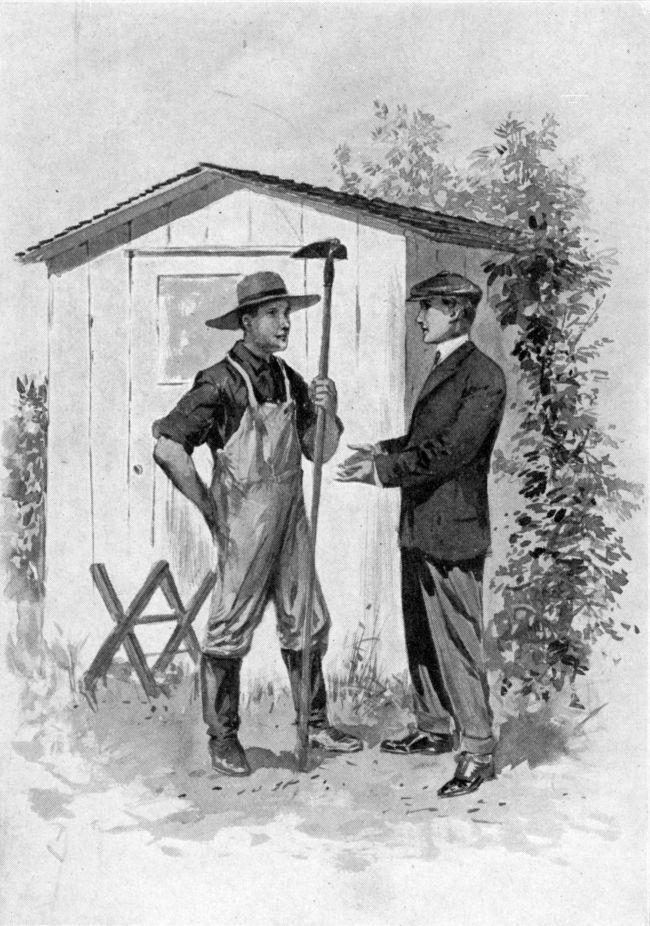ELEPHANTS UNDER HUMANCARE
TheBehaviour,Ecology,andWelfareof ElephantsinCaptivity
PAUL A.REES
SchoolofScience,EngineeringandEnvironment,UniversityofSalford,UnitedKingdom
AcademicPressisanimprintofElsevier
125LondonWall,LondonEC2Y5AS,UnitedKingdom
525BStreet,Suite1650,SanDiego,CA92101,UnitedStates
50HampshireStreet,5thFloor,Cambridge,MA02139,UnitedStates
TheBoulevard,LangfordLane,Kidlington,OxfordOX51GB,UnitedKingdom
Copyright©2021ElsevierInc.Allrightsreserved.
Nopartofthispublicationmaybereproducedortransmittedinanyformorbyanymeans,electronicormechanical, includingphotocopying,recording,oranyinformationstorageandretrievalsystem,withoutpermissioninwritingfromthe publisher.Detailsonhowtoseekpermission,furtherinformationaboutthePublisher’spermissionspoliciesandour arrangementswithorganizationssuchastheCopyrightClearanceCenterandtheCopyrightLicensingAgency,canbe foundatourwebsite: www.elsevier.com/permissions
ThisbookandtheindividualcontributionscontainedinitareprotectedundercopyrightbythePublisher(otherthanasmay benotedherein).
Notices
Knowledgeandbestpracticeinthisfieldareconstantlychanging.Asnewresearchandexperiencebroadenour understanding,changesinresearchmethods,professionalpractices,ormedicaltreatmentmaybecomenecessary.
Practitionersandresearchersmustalwaysrelyontheirownexperienceandknowledgeinevaluatingandusingany information,methods,compounds,orexperimentsdescribedherein.Inusingsuchinformationormethodstheyshouldbe mindfuloftheirownsafetyandthesafetyofothers,includingpartiesforwhomtheyhaveaprofessionalresponsibility.
Tothefullestextentofthelaw,neitherthePublishernortheauthors,contributors,oreditors,assumeanyliabilityforany injuryand/ordamagetopersonsorpropertyasamatterofproductsliability,negligenceorotherwise,orfromanyuseor operationofanymethods,products,instructions,orideascontainedinthematerialherein.
BritishLibraryCataloguing-in-PublicationData
AcataloguerecordforthisbookisavailablefromtheBritishLibrary LibraryofCongressCataloging-in-PublicationData
AcatalogrecordforthisbookisavailablefromtheLibraryofCongress
ISBN:978-0-12-816208-8
ForInformationonallAcademicPresspublications visitourwebsiteat https://www.elsevier.com/books-and-journals
Publisher: CharlotteCockle
AcquisitionsEditor: AnnaValutkevich
EditorialProjectManager: BillieJeanFernandez
ProductionProjectManager: JoyChristelNeumarinHonestThangiah
CoverDesigner: MatthewLimbert
TypesetbyMPSLimited,Chennai,India
Contents
Acknowledgementsxiii
Prefacexv
Whoisthisbookfor?xvii ‘Zooelephant’or‘elephantlivingina zoo’:anoteonterminologyxix
1.Elephantsandtheirrelationshipwith humans
1.1Anotherbookaboutelephants1
1.2Whatisanelephant?3
1.2.1Elephanttaxonomy3
1.3Conservationstatus7
1.3.1ThestatusofAsianelephantsinthe wild7
1.3.2ThestatusofAfricanelephantsinthe wild7
1.4Thehumanuseofelephants8
1.4.1Elephantsinancienttimes8
1.4.2Haveelephantsbeen domesticated?9
1.4.3Ceremonialandreligioususeof elephants;elephantsasgifts9
1.4.4Theuseofelephantsfortransportation andasweaponsofwar10
1.4.5Elephantsandforestryoperations13
1.4.6Elephantsasentertainers:circuses,sports andtourism13
1.4.7Elephantsasambassadorsfor conservation14
1.5Thebeginningofelephantresearch15
1.5.1Aristotleandelephants15
1.5.2Anatomicalresearch18
1.5.3Anecdotesasasourceofknowledge aboutelephants24
1.5.4Papersinacademicjournals25
1.5.5Earlyphysiologicalresearch25
1.6Unacceptableelephantscience26
1.7Captiveelephantsasproxiesforwild elephants27
2.Ethologicaldatacollectionand elephantactivitybudgets
2.1Introduction29
2.2Methodology29
2.2.1Identifyingindividuals29
2.2.2Studyingelephantsinzoos31
2.2.3Ethograms34
2.2.4Methodologicaldifficulties36
2.2.5Datacollectionbycaregivers38
2.3Activitybudgets39
2.3.1Introduction39
2.3.2Feeding43
2.3.3Dusting45
2.3.4Walking46
2.3.5Resting,sleepingandnocturnal behaviour46
2.4The24-hourneedsofelephantsinzoos50
3.Elephantsocialstructure,behaviour andcomplexity
3.1Introduction51
3.2Thestructureofelephantsocieties51
3.2.1Elephantsocietiesinthewild51
3.2.2Elephantsocietiesincaptivity53
3.2.3Socialbehaviourandbreeding59
3.3Associationsbetweenindividualsand friendships59
3.4Introductionsintoanelephantgroup63
3.5Protectiveformations64
3.6Dominancehierarchies66
3.7Aggression,appeasementandchastisement68
3.8Personality76
4.Elephantreproductivebiology
4.1Introduction81
4.2Historicalaccountsofsexualbehaviour81
4.3Courtshipandmatingbehaviour83
4.4Chemicalcontrolofreproduction88
4.4.1Musth88
4.4.2Endocrinemonitoringoffemales89
4.5Behaviouralindicatorsofoestrus90
4.6Gestation,pregnancymanagementand birth91
4.7Parentingandcalfdevelopment93
4.7.1Developmentalmilestonesandbirth statistics93
4.7.2Parentingandallomothering94
4.7.3Theeffectofacalfonsocial interactionsintheherd99
4.8Earlysexualbehaviour100
4.8.1Earlymalesexualbehaviour100
4.8.2Juvenilemounting100
4.9Reproductivechallengesandsolutions106
4.9.1Acyclicityandspermquality106
4.9.2Obstetricsandbirthingproblems109
4.9.3Newtechniquesinreproductive physiology109
5.Elephantcognition,communication andtooluse
5.1Introduction113
5.2Cognition113
5.2.1Historicalperspectives113
5.2.2Self-awareness:doelephantsknow theyexist?114
5.2.3Discriminationbetweenobjectsand betweenquantities116
5.2.4Insightfulbehaviour116
5.2.5Pointing116
5.2.6Memory117
5.3Communication118
5.3.1Introduction118
5.3.2Vocalcommunication119
5.3.3Humanspeechimitation120
5.3.4Chemicalcommunication120
5.3.5Tactileandseismic communication123
5.4Visualacuityandvisualdiscrimination123
5.5Tooluse124
5.6Knowingwhentocooperate127
6.Elephantecologyandgenetics
6.1Introduction129
6.2Ecophysiology129
6.2.1Introduction129
6.2.2Acclimatisationtonew environments130
6.2.3Thermoregulation130
6.3Feedingecologyandenergetics133
6.3.1Foodpreferences133
6.3.2Feedingmethods134
6.3.3Calculatingfoodconsumption134
6.3.4Digestibility137
6.3.5Foodpassagetime137
6.3.6Defaecation139
6.3.7Foodsupplementation139
6.4Energetics140
6.5Exhibitdesignandenclosureuse141
6.5.1Introduction141
6.5.2Enclosureuse142
6.5.3Substrateandindoorversusoutdoor preferences146
6.5.4Multispeciesexhibits148
6.5.5Rotationalexhibits149
6.5.6Elephantsasagentsoflandscapechange inzoos150
6.6Populationecology153
6.6.1Introduction153
6.6.2Agedeterminationfromteeth154
6.6.3Longevityandlifeexpectancyin zoos154
6.6.4Birthratesandcalfsurvival155
6.6.5Sexualmaturityandmeancalving interval157
6.6.6ReproductiveperformanceofAsian campelephants158
6.6.7Reproductivecessationandthe ‘motherhypothesis’161
6.6.8Sustainabilityofzoopopulations161
6.6.9Importationofelephantsfromrange states162
6.7Genetics163
6.7.1Introduction163
6.7.2Interspecifichybridisation164
6.7.3Intraspecifichybridisation164
6.7.4Geneticdiversity164
7.Elephantwelfare
7.1Historicalperspectives169
7.2Measuringelephantwelfare173
7.2.1Whatiswelfare?173
7.2.2Howcanwelfarebemeasured?173
7.2.3Population-levelwelfareindices175
7.2.4Bodyweightandconditionscoring176
7.2.5Thewelfareofelephantsworkingin tourism179
7.2.6Stressanddistress180
7.2.7Behaviourasawelfareindicator181
7.2.8Stereotypicbehaviours183
7.3Environmentalenrichment194
7.3.1Definingenvironmental enrichment194
7.3.2Foodandforagingasenrichment196
7.3.3Substratumandtreesas enrichment199
7.3.4Waterasenrichment202
7.3.5Sleep,restandenrichment202
7.3.6Sound,musicandartas enrichment205
7.3.7Interactivetoys206
7.3.8Improvingelephantwelfarethrough breeding206
7.3.9Socialcontact:theultimatein enrichment207
7.4Training207
7.5Locomotionandgait208
7.6Obesity210
7.7Disease211
7.7.1Introduction211
7.7.2Histology213
7.7.3Foothealth214
7.7.4Tuberculosis216
7.7.5Elephantendotheliotropic herpesviruses217
8.Housingandhandlingelephants
8.1Introduction219
8.2Wildelephantdeclineandtheestablishment ofexsitubreedingprogrammes219
8.3Elephantenclosures222
8.3.1Housingandcontainment222
8.3.2Earlyelephanthouses223
8.3.3Enclosuresizeandsubstratum229
8.3.4Newenclosures237
8.4Thecostofkeepingelephantsundergood welfareconditions238
8.5Elephantsandtheircaretakers243
8.5.1Keeper elephantbonds243
8.5.2Traditionalelephantexpertiseversuszoo husbandry244
8.5.3Keeperandmahoutdeaths246
8.5.4Freeversusprotectedcontact248
8.6Transportation250
9.Ethics,pressuregroupsandthelaw
9.1Introduction259
9.2Isitethicaltokeepelephantsin captivity?259
9.3Pressuregroups264
9.4Law266
9.4.1Introduction266
9.4.2Ivoryinhumanownership266
9.4.3TheUNConventiononBiological DiversityandtheIUCN268
9.4.4Elephants,zoosandthelaw270
9.4.5Thelawandelephantsinprivate ownership271
9.4.6Elephants,entertainmentandthe law272
9.4.7Legalpersonhoodand habeas corpus 274
9.4.8Elephantcrueltyandcruel methods275
9.4.9Zoosandthewildlifetrade278
9.4.10Arighttocompanionshipand retirement282
9.4.11Financialsupportforinsitu conservation284
10.Theconservationvalueofcaptive elephants
10.1Introduction287
10.2Thepopularityofelephantsinzoos290
10.3Zooelephantsasinsurancepopulations294
10.3.1Introduction294
10.3.2TheSpeciesSurvivalPlaninNorth America295
10.3.3TheEuropeanEndangeredspecies Programme295
10.3.4Arezooelephantpopulations sustainable?296
10.4Scientificresearch297
10.5Thedevelopmentoftechnologiesrelevantto fieldconservation298
10.6Educationalfunction300
10.7Professionaltrainingoflocalconservationists andassociatedtechnologytransfer306
10.8Fundraisingforinsituconservation307
10.9Dozooandconservationauthoritiessupport captivebreedinginzoos?308
10.10Captivebreedinginrangestates309
10.11‘Domestication’ofAfricanelephants310
10.12Conclusion310
11.Thefutureofelephantsincaptivity
11.1Introduction313
11.2Elephantranching313
11.3Rewilding shadesofJurassicPark315
11.4Releasetothewild316
11.5Welfareconcerns317
11.6Sanctuaries317
11.7Arepositoryofusefulgenes318
11.8Cloning320
11.9Elephantsastherapy320
11.10Climatechange321
11.11Aroleforzoos?321
11.12Consumptiveuseorintensiveprotection zones?324
11.13Thecourtofpublicopinion326
11.14Predictions326
Postscript327
Appendix329
Glossary333
References341 Index379
THE PENNANT
CHAPTER I ON SIX TOWN POND
“H
ave you tried the fishing this summer?”
“No; I’ve been too busy on the farm. This is the first day I have had when I could get away.”
“It looks like rain. Is that the reason why you’ve dropped the shovel and the hoe?”
“Partly. It’s more though, for the two dollars a day you’ve agreed to pay me for rowing you over the pond. I can’t pick that up on the farm, you know.”
“You’ll soon be a rich man if you don’t look out. Ever thought what you’d do with all your money?”
“Yes; I’ve thought a good lot about it. Perhaps ‘thinking’ about it is as far as I’ll ever get with it.”
“How are you going to invest it?”
“I’d like to get enough to help me go to school.”
Walter Borden sat quietly erect in the stern of the rude skiff in which he was seated, lazily holding a rod in his hands from which a long line was paid out in the hope that some stray pickerel in Six Town Pond might be tempted by the bait displayed.
A half-hour before the time when the conversation recorded above had taken place he and his companion, Dan Richards, had driven seven miles from the home of Walter’s grandfather, for the day, which was to be devoted to fishing in the pond, that extended three miles in length and in places was a mile or more wide. The little body of water was well known in the region for the fish which were
said to be found in its depths, and Walter was convinced that the reports were not exaggerated, for in numerous summers preceding the one when this story opens he had tested the fact with varying degrees of success.
Every summer Walter came from his home in New York to spend at least a part of his vacation on the farm of his Grandfather Sprague. The broad acres, the great roomy barns, the cattle and horses, the deep brook that sped swiftly through the pasture, even the old-fashioned farmhouse with its garret and its broad piazzas, to say nothing of the many low rooms with their numerous windows, had every one a place dear to Walter’s heart. From his earliest recollections, here was the place where his summer days had been passed. So eager was he to come, that when he was only ten years old his father and mother had yielded to his pleadings and seen him safely entrusted to the conductor and porter of the sleeping-car, and alone he had gone on the journey of three hundred miles to Rodman, the little village a half-mile distant from Grandfather Sprague’s home. It is true this is the form which Walter took to describe the place, although an ordinary observer would have said that the Sprague farm was half a mile from the village.
Later in the summer Mrs. Borden came to join her boy and pay her annual visit to her father and mother. Her words of wonderment, when she arrived, at the change in her boy’s appearance since he had left home did not vary much from year to year. The tanned cheeks, the firmer muscles, the keen appetite, that made Grandfather Sprague shake his head as the cook’s johnny-cakes disappeared twice a day almost as silently as the dew from the shaded lawn, were an annual delight to Mrs. Borden.
“Beats all how much a boy can hold,” Grandfather Sprague daily would say as he watched the hungry lad.
Those days were gone now, for Walter Borden was a well-grown muscular boy of sixteen. “I haven’t a doubt that I can put you on the bed yet,” laughed his grandfather, his eyes twinkling as he spoke.
“You’d better not try it,” laughed Walter’s mother, glancing in pride at her boy.
“Come on, grandfather,” Walter would call out laughingly; “try it!”
“‘Try it’!” retorted Grandfather Sprague. “I’m not going to ‘try’ it; I’m going to do it!”
“When?” laughed Walter.
“One time is as good as another.”
“Do it now! Do it now!” retorted the lad.
“You’re nothing but a little whipper-snapper. You don’t weigh more than a hundred and fifty.”
“How much do you weigh, grandfather?”
“Two hundred and ten.”
“All right. You have the advantage in weight. I’ll not count it though, if you’ll put me on the bed.”
“Don’t try it, pa,” spoke up Grandmother Sprague. “You might slip and break your leg.”
“Or hurt his pride,” laughed Walter, whose love and respect for his grandfather were almost as keen as was the old man’s love for the stalwart lad.
“Pooh, ma,” the old gentleman retorted a trifle testily. “You don’t suppose I’m so old I can’t take my own grandson across my lap and spank him as he deserves, do you?”
“You might if he would lie still,” replied Mrs. Sprague dryly. “But you and I were born on the same day and so I know just how old you are. You are seventy-seven——”
“And almost as spry as ever I was,” broke in her husband. “I don’t feel a day older than when I was forty. The only thing that troubles me any is that I stub my toe more than I used to.”
“You take my advice and don’t bother with Walter.”
“Well, to please you, ma, I’ll give him a day of grace. But I give you fair warning,” he would add turning to the laughing boy, “that to-morrow at ten-thirty I shall give you what you deserve.”
“To-morrow at ten-thirty,” brought a daily repetition of the scene and conversation and not yet had Grandfather Sprague found just the time for displaying his prowess. His deep love for Walter was a source of joy to his grandson, who almost revered his portly, jolly, devout grandfather. His happiest days were those spent on the farm, and next to them were the visits of his grandfather and grandmother to the city.
According to Grandfather Sprague, all the members of the family were in a conspiracy to “spoil the boy,” that is, all except himself. He was for letting the boy know his proper place. But if anyone had ever heard of Grandfather Sprague refusing a request of Walter, or failing to be the first to herald his success in school or on the athletic field, he had held his peace so successfully that none had ever heard his testimony.
Every spot and creature on the farm were known to Walter. He had tramped in the woods, fished in the brooks, ridden the horses, driven the cows from the pasture to the barns—in fact, in former years the only moments when he had not been busy had been those when his tired little body was asleep. The collie and the horse which had been given him brought Walter’s life a little more closely into touch with animate things, but his chief interest aside from his grandfather’s place was in Dan Richards, who lived with his widowed mother and his brother Tom—a year and a half older than Dan—on the little farm adjoining.
Dan’s skill in making whistles of the willows, his unusual strength, his quiet bearing had appealed strongly to Walter in other days. Even now, when both were older and Dan’s lack of money was as marked as was Walter’s freedom in its use and disregard of its true value, there was a similar feeling of regard in Walter’s heart. The dark eyes, the tall form, the quiet unassuming ways of Dan were still almost as strong in their appeal to Walter as were the undoubted
possession of physical strength and skill which were Dan’s. The quiet manner in which Dan had accepted his friend’s offer to pay him for rowing on the pond had deceived Walter completely. His blue eyes, his light-brown hair, his well-knit muscular body—“stocky” Dan called him, were not in sharper contrast to Dan’s physical characteristics than were their differences in mind and temper. The offer to “employ” his old friend had meant little to Walter. How much of an effort it had been for Dan to accept he never for a moment even suspected. Even his expression of surprise when he looked up hastily, as Dan explained how he hoped to invest his earnings, did not have in it one glance of understanding. Dan and the little “Rockland Farm,” which, with the best of care, provided only a scanty living for its owners, were almost inseparable in Walter’s mind. That Dan had ambitions beyond the limits of his farm or even beyond the little village of Rodman had not once occurred to Walter.
“School, Dan?” he exclaimed in surprise as he looked at his companion.
“Yes,” replied Dan quietly, without glancing at the fisherman.
“What put that into your head?”
“Haven’t you ever heard of a fellow wanting to get an education?”
“Why yes, of course,” said Walter, “but I hadn’t thought——”
“Of me in that connection?” suggested Dan as his friend hesitated.
“I don’t know why I shouldn’t think of it,” said Walter hastily.
“But the fact is you hadn’t?”
“Yes, I suppose so. What are your plans?”
“I don’t know that I have any very definite ‘plans,’ as you call them. Last year there was a young fellow from college that taught our school. I guess he put it into my head. He seemed to be interested, and gave me some lessons every night after I had finished my chores.”
“In what?”
“Oh, in algebra and Latin.”
“And you have been working on them?”
“A little. I had to be busy on the farm all day, and nights were the only times I had free.”
“Where do you plan to go?”
“I had been thinking some of going to the Normal School at Jericho. That’s only forty miles from here. It won’t cost very much there, you know. If I can get a little money ahead, I’m going to try it anyhow,” Dan said quietly.
“Going on to college?”
“I should like to. The hardest thing is to leave my mother and Tom to run the farm. They need me and I don’t know that they really can get along without me.”
“Don’t they want you to go?”
“Yes. Mother says she’ll sell or mortgage the farm and go with me, if Tom will go too. She’d get a few rooms and perhaps take a few boarders and help us that way.”
“Your mother is all right.”
“Don’t I know that?”
“You ought to, if any one does——”
“You’ve got a strike,” broke in Dan quietly. “Better pay attention to your fishing, that is, if you want to get any fish.”
Conversation ceased as Walter sharply yanked his rod. “The fish got away!” he exclaimed with chagrin a minute later.
“Of course,” said Dan dryly. “What did you expect? You pulled the hook right out of his mouth. You don’t think a pickerel will hang on with his fins and tail, do you?”
“Show me how, Dan,” said Walter humbly. “I believe I’ve forgotten how to do it.”
“No, you haven’t. You never knew how, so you haven’t forgotten. Hold on! You’ve got another strike! Hand me your rod and I’ll try to show you how to handle a strike.”
CHAPTER II
DAN’S PROJECT
Dan took the light rod and instantly let out a few feet of the line. He dropped his oars as he did so and the skiff swung around before the gentle breeze that was blowing. Intently watching the line, he permitted the tip of the rod to drop back until it was even with the stern of the boat, and then with one strong yank he swung it back until it was again at a right angle with the skiff.
“Take your rod,” he said quietly, as he handed it to his companion. “Your pickerel is hooked all right; now let me see you land it. Be careful of your slack,” he added quickly, as Walter began to reel in swiftly.
The oars were again grasped by Dan, and he slowly sent the boat ahead, meanwhile watching his companion in the latter’s efforts to land his prey. “It’s a big fellow!” said Walter in his excitement as the contest continued. “It’ll weigh six pounds! It pulls like a load of bricks! I didn’t know there was a pickerel as big as that in Six Town Pond!”
“Be careful,” said Dan in a low voice. “Let him run! Give him line or you’ll tear the hook out of his mouth! Not that way!” he added, as Walter permitted the struggling fish to make swiftly for the near-by weeds. “If you let him get among those weeds he won’t stop to say good-bye.”
As Walter once more began to reel rapidly an expression of consternation swept over his face as he said, “It’s gone! There isn’t a bit of weight on the line! It must have got away.”
“Reel in,” commanded Dan.
“I am reeling, but——” Walter stopped abruptly as a savage pull upon his line interrupted his declaration.
The contest continued several minutes, neither of the boys speaking. Walter’s excitement was intense, and he stood up in the skiff to enable him to look for the struggling pickerel.
“Sit down!” ordered Dan a trifle sharply.
“I can see better when I’m standing,” replied Walter. “There it is!” he shouted as his victim came within sight. “It’s a beauty! It’ll weigh more than six pounds! It’s the biggest pickerel I——”
“Look out! Don’t let him touch the boat!” broke in Dan, as the huge pickerel made a sudden rush beneath the skiff. “There! You’ve lost it!” he added grimly, as the fish tore itself free from the hook and with a swift turn darted beyond the vision of the excited Walter.
“That’s strange,” muttered Walter, as in deep chagrin he resumed his seat. “I don’t see how it got away. You couldn’t have hooked it very well in the first place, Dan.”
The young oarsman smiled a trifle derisively as he said: “A good fisherman doesn’t have to have a fish strapped and tied to land it. I told you not to stand up.”
“What difference does standing make?”
“You have to balance yourself as well as handle the rod. Only an expert can do that. Let me have your line. Your bait is gone.”
As Dan drew in the line and again baited the hook Walter laughed as he said: “Oh, well, Dan, I’ll soon get the trick of it again. You must remember that we don’t fish very much in the streets of New York.”
“So I hear,” quietly responded Dan as he handed back the fishingrod.
“This time I’ll be careful, Dan,” continued Walter, as he resumed his seat and let out his line again, while his oarsman sent the skiff more swiftly ahead.
“You’ll get it next time.”
“Let us hope so. Dan, how is the Rodman nine this summer?”
“Pretty fair. We have a game to-morrow.”
“Who is to be the victim?”
“I’ll tell you later about that.”
“What nine do you play?”
“The nine from Benson.”
“Same team you played last summer?”
“Yes.”
“Let me see; the score last year was thirty-seven to nineteen, wasn’t it?” laughed Walter.
“Yes.”
“What’ll it be this year?”
“I’m no prophet.”
“Seventy-four to thirty-eight?”
Dan smiled good-naturedly as he replied: “We’ll have an umpire this year that can tell the difference between a foul ball and a bunt. There’s a fellow staying at the Wright place that knows baseball like a book.”
“Who is he?”
“Moulton.”
“What Moulton?” asked Walter, interested at once.
“He’s pitcher on one of the college nines.”
“It isn’t Moulton from Princeton, is it?”
“Yes.”
“How long has he been here?”
“About three weeks.”
“Great! He’s one of the finest! He struck out sixteen men in his first game this year?”
“Did he?”
“He did that,” said Walter, his interest becoming still more manifest. “He’s one of the greatest college players ever known. The New Yorks offered him four thousand dollars a year to join their team.”
“Well, he’s going to umpire the game for us to-morrow.”
“Good! Great! He’ll be pretty sharp with you.”
“All right.”
“Who’s to pitch for your nine?”
“I am.”
“Who is to catch?”
“Tom.”
“Your brother?”
“Yes.”
“I shouldn’t think you’d have time to practise.”
“We don’t have much time.”
“How long have you been pitching?”
“Three weeks.”
“You played first base last year.”
“Yes.”
“What made you think you could pitch?”
“I don’t know that I can. I’ll tell you more about it to-morrow, after the game with Benson.”
“It’s a pity I didn’t come up a little sooner. I might have given you a little coaching. Of course, I’m not a pitcher. I play short on the Tait School nine. But I know a little how it ought to be done, even if I can’t do it myself.”
“We have had a little coaching,” said Dan quietly.
“Who has been coaching you?” laughed Walter. “Moulton.”
“What? The Princeton pitcher?”
“Yes.”
“That’s great!” exclaimed Walter, his enthusiasm returning in full measure. “How does he do it? When do you get the time?”
“He comes over to the house every night after supper.”
“And Moulton has been showing you how to do it?”
“He has been trying. He has done his best. If I don’t learn the fault isn’t his, anyway.”
“I wouldn’t miss that game to-morrow for a fortune. I’m going to see how much you can do.”
“Wouldn’t you like to play short?”
“I’m your man!”
“I thought you’d want to, so I saved the position for you.”
“That’s good of you! I’ll try not to disgrace—hold on, I’ve got another strike! I don’t want to lose this fellow!”
Once more Dan swung the skiff around until it was broadside to the struggling fish. He was too wise to make any suggestions to his companion at such a time, though he quizzically watched his friend as the latter attempted to follow the directions that had been given him before. The pickerel was securely hooked and at last Walter managed to bring his victim near enough to the boat to enable Dan to secure it with the aid of a landing-net.
“It’s only a little fellow!” exclaimed Walter in disgust, as he looked at the fish after it had been thrown upon the bottom of the boat. “It won’t weigh more than a pound and a half. Not much like the big one that got away.”
“That’s a trick fish have,” remarked Dan dryly, as he once more resumed his task at the oars, after he had placed a fresh bait on the hook.
“But the one I lost was a big one!” persisted Walter.
“That’s what I’m telling you. It will get bigger and bigger all the time. To-night when you go back to your grandfather’s, that pickerel will weigh ten pounds at the very least. The weight increases as the square of the distance.”
“That’s all right, Dan,” laughed Walter. “Have it your own way. You’ll have to own up that I landed this fellow all right, anyway.”
“It couldn’t get away, it was hooked so well. You could have landed it with a block and tackle. It had swallowed the hook.”
“Well, you just watch me next time.”
An hour elapsed, however, without another strike. The summer sun had climbed high into the heaven and the waters of Six Town Pond were almost like glass. Walter’s impatience increased as the time slowly passed. Even conversation ceased and at last Dan said:
“The water is almost too clear this morning, Walter. I’m afraid we sha’n’t get many pickerel to-day. It’s half past eleven,” he added as he glanced at his watch. “Don’t you think we’d better row over to the bluff and get a few perch for dinner?”
“I’m ready,” responded Walter promptly. “Shall I reel in?”
“No; you might as well troll while we’re crossing the pond. One never can tell, you know. By the way, Walter, is this a pond or a lake?”
“What’s the difference? I always thought a pond was a small lake.”
“A lake has an outlet; a pond doesn’t. No, it’s the other way.”
“Then Ontario and Erie ought really to be called Ontario Pond and Erie Pond—they both have outlets.”
“Here we are,” replied Dan, as he rowed under the shadows of the high shore. “Now you’ll have to show that you are a fisherman, Walter, or we sha’n’t have any fish for dinner. Here, let me change your tackle,” he added. In a brief time the change was made, and as Walter dropped his line into the water, Dan said: “I’ll take this other pole and try my luck. When we get a half-dozen perch that will be enough and we’ll go ashore. There’s a stone fireplace up there among those cedars which we can use.”
“There was one last summer. Is this the same one?”
“I guess so; it hasn’t been disturbed. Now we’ll see which will get the first perch,” he added, as he dropped a line into the water on the opposite side of the boat.
The question was speedily settled, for in a brief time Dan landed two perch in quick succession.
“I don’t see how you do it!” exclaimed Walter.
“Then I’m afraid I can’t tell you,” said Dan good-naturedly, making his perch captive in the end of the boat.
“It’s just born in some people—hello! There! I’ve got a bite!” Walter’s attention was quickly centered upon the fish he had hooked and a few minutes later, after he had succeeded in landing his prey, he exclaimed: “Mine is the biggest one yet! You can count yours if you want to. I’ll just weigh mine.”
“All right. You might weigh this fellow too while you are in the business,” said Dan quietly, as he secured a perch much larger than his companion’s. “Two more will give us all we want.”
The two additional perch were speedily secured, Dan catching both of them, and then the skiff was sent ashore and the boys leaped out and drew the little boat far up on the sandy beach.
CHAPTER III
GREAT SNAKES
“Y
ou get some wood, Walter, and start a fire in the fireplace, while I am cleaning the fish and getting everything ready for dinner,” said Dan, as the two boys, with the fish they had caught and the cooking utensils in their hands, started toward the grove on the bluff.
“Where’ll I find an axe?”
“There’s one in the skiff, but I don’t believe you’ll need it. Just pick up some of the dead wood; that’s all we want.”
“I’ll have a roaring fire before you’re ready,” laughed Walter, as he turned among the trees. In a brief time he had collected sufficient wood, and a blazing fire was soon made in the rude fireplace. As he completed his task, Walter turned to his companion, who now was peeling some potatoes.
“Put the kettle on and fill it with water from the spring,” Dan said. “If you are as hungry as I am, you won’t want to lose much time. I’ll have these potatoes boiling before you know it, if you are lively.”
“I’m your man,” laughed Walter, as he seized the kettle and at once went to the bubbling little spring on the border of the woods. As soon as he returned he placed the kettle over the fire, resting it upon the flat stones. In a moment Dan dropped his potatoes into the water and then turned to his fish.
“They’re great, Dan!” exclaimed Walter, as he saw his companion take the white-meated fish which had been cleaned and skinned and, after he had carefully placed them on the broiler, hold them over the blazing fire. “Strange, isn’t it?” continued Walter. “Less than an hour ago those perch were swimming around in Six Town Pond
as lively as crickets. Three hours afterward they are an important part of you and me. If I get a home run in the game to-morrow, probably that big perch that took my hook a few minutes ago will be what provided the force. One minute, a live fish chasing another smaller fish and trying to swallow it, and the next just changed into the force and nerve and muscle that knocks out a clean home run. Ever think about that, Dan?”
“Can’t say that I have. You’d do better to drop poetry and set the table.”
“You never get your feet off the earth, do you, Dan?” laughed Walter, as he turned to do as he was bidden.
“I’ve never seen a live man yet that could do that or lift himself by the straps of the boots he was wearing. Hurry up with that table!”
Walter took the table, which had been folded and stored in the skiff, and placed it in the shade of a great tree near the fireplace. Two small camp-chairs were next taken from the boat and then the basket, in which a small tablecloth, some napkins, and some knives and forks had been arranged, was brought, and its contents spread upon the little table.
“Hurry up, Walter!” called Dan laughingly, as he faced his friend. “Dinner is almost ready. I get a cloud of smoke in my eyes every little while when the wind veers. That drives me away from the fire, so I lose time. You might get that basket under the stern seat—no, I left it in the buggy. It’s the one that has the boiled eggs, the bread, pie, cake, and etceteras in it. Bring it on if you want to rush things a bit.”
“I’ll have it here in a minute!” called Walter, as he ran swiftly toward the shaded place where the buggy had been left. Near the buggy was old Prince, the horse which the boys had driven that morning. Walter could see the black flanks of the old horse among the trees and as he came nearer he was startled when Prince suddenly snorted as if he were in great fear and began to pull upon the strap as if he were doing his utmost to get away.
“Whoa, old fellow!” called Walter. “What’s the trouble now? The flies biting you? Great——” he began as he came nearer the snorting animal and then abruptly stopped at the startling sight he saw. Crawling lazily over the grass toward the pond, which was only a few yards distant, Walter beheld a snake larger than any he had ever seen out of captivity. As he stopped the great snake also stopped, and lifting its head gazed at the intruder, darting its forked tongue as if it were minded to drive its enemy from the place.
“Hi, Dan! Come over here! Come as fast as you can run! Bring the axe!” called Walter in his excitement. “Come on! Come on!”
Alarmed by the sharp call, Dan instantly dropped the cooking utensils in his hands and seizing the axe ran swiftly toward the spot where his friend was standing. Not a word did he speak until he stood by Walter’s side and then in a whisper he asked, “What’s wrong?”
“The biggest snake you ever saw has just crawled into the weeds down there on the shore!” said Walter excitedly, pointing as he spoke to the huge bed of reeds near the water. “It was as big around as an oar! It wasn’t a foot less than seven feet long! Old Prince was scared out of his——”
Dan waited to hear no more, but grasping his axe, he ran swiftly toward the rushes where Walter had said the great reptile had crawled.
“Come back here, Dan!” called Walter, shouting to his friend. “You’ll get bitten or squeezed! That thing is a terror! Come back here!”
But Dan did not heed the call of his excited companion. Parting the tall rushes, he stepped boldly into the midst of them and soon was concealed from Walter’s sight. Hesitating a moment, the latter looked about him for a weapon of some kind, and as none could be seen he hastily seized the whip in the buggy and then ran swiftly to the aid of his friend, whose danger he was convinced was great.
Cautiously approaching the rushes, he called, “Where are you, Dan? I’m here to help! Where are you?”
No reply came from the marsh, though Walter was convinced that he could trace his friend’s way by the movements of the tall rushes. Waiting a moment anxiously, he called again: “Where are you, Dan? Don’t take any chances! Come back here and let the snake do as he pleases! Come on, Dan! Come on!”
“Go back and look after the dinner!” came a low call from the midst of the weeds.
“I’m not going to leave you here alone!” retorted Walter.
“If you want anything to eat go back and look after the fire. I don’t want any help.”
“Have you seen anything of the snake?”
No reply was made to the query and after delaying a brief time Walter walked slowly back to the place where the fire was burning. He repeatedly assured himself that he was not “nervous,” but several times he was startled and stopped abruptly until he was able to decide whether a long dead branch in his pathway was really what it appeared to be. However, without any serious mishap he arrived at the place he was seeking and instantly discovered that Dan’s warning was most timely, for the fire had burned low and the fryingpan had tipped so that one of the perch had fallen into the ashes. Quickly righting the pan, he at once placed fresh wood upon the fire and soon had everything restored to its proper place. As he turned to look toward the marsh he saw his friend approaching, and it was manifest that he had not secured the snake.
“What’s the trouble, Dan? Where’s the snake?” inquired Walter.
“Got away,” answered his friend.
“Did you see it?”
“Yes.”
“How big is it?”
“Long as a fence rail.”
“I told you it was. Did you ever see as big a one before?”
“No.”
“Did it turn on you?”
“I thought it was going to, but it probably thought better of it, for it made for the deep water and I lost sight of it.”
“What kind of a snake was it?”
“Just a plain water-snake, that’s all.”
“I shouldn’t want it to bite me. I don’t like snakes anyway. The sight of one makes my flesh creep.”
“That’s all foolishness. A snake is a mighty pretty thing. I’ve taken little striped snakes up in my hands a good many times and examined them. Their marking is great, Walter!”
“I’m willing to take your word for it!”
“You don’t have to, for you can see for yourself. This big fellow might put up a good fight if he was cornered, but I don’t believe he would touch anyone if he was left alone.”
“He scared old Prince all right.”
“Well, he was something of a snake, but he wouldn’t touch a live animal unless it was a frog or a squirrel.”
“Eats dead fish, doesn’t he?”
“Yes; you don’t eat live ones, do you?”
“Not if I can help it. There, I’m glad he’s gone. Think there are any more like him around here?”
“Some snakes go in pairs.”
“Do they?” inquired Walter, glancing anxiously about him as he spoke, an action that brought a trace of a smile to Dan’s face. “I’m not afraid,” said Walter hastily, as he noticed the expression on his
